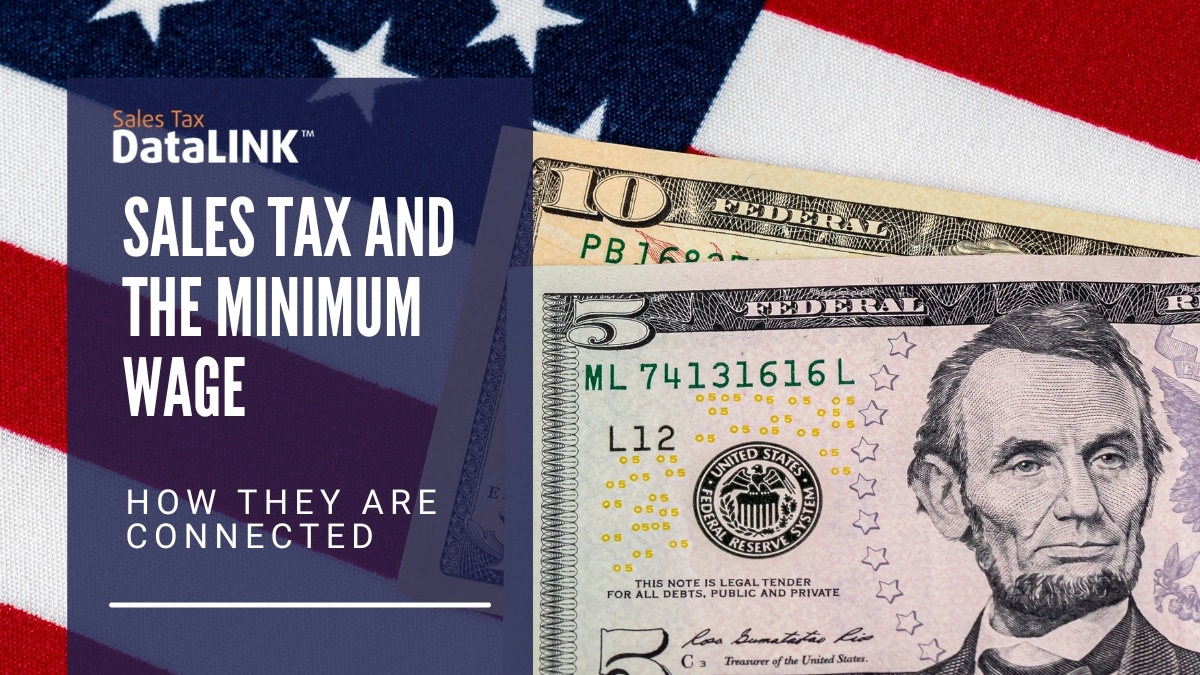Sales Tax and the Minimum Wage – Is There a Connection?
There has been a lot of discussion about raising the minimum wage. President Obama is in favor of it, 38 states have at least considered bills doing so, and Seattle leads the way with a $ 15-an-hour minimum wage kicking in over five years, with a variety of schedules and exceptions depending on the size of the business and the benefits they offer. On the surface, this doesn’t seem to be related to sales taxes, and yet in many states, the two issues are being discussed together and even turning up in legislation together. What’s the connection? The truth is, that the effects of an increase in the minimum wage are uncertain.
Here are some of the factors that have to be taken into account: Only about 2% of Americans actually earn the current minimum wage — but plenty earn less than $15.00 an hour. The number of people affected will therefore depend on the rate of the new minimum wage. The economic results of raising the minimum wage depend on how employers choose to deal with it. At the very least, employers’ choices include accepting lower profits, hiring fewer workers and expecting more of those they keep on, and passing the cost on to the consumer. Low-wage workers are often concentrated in industries that already have low profit margins. Fast food restaurants, for example, often have profit margins of 2-5%. Accepting lower profits is not an option if raising wages would mean the restaurant doesn’t break even. Managing with fewer workers, perhaps with the help of more automation, could be an option for some industries. However, most economists hold that raising the minimum wage should not result in a long-term loss of jobs. The work still needs to be done, Passing costs on to consumers could result in higher spending in certain categories, which could increase sales tax revenues.
A higher wage could also result in increased spending by those who receive the higher wage, again resulting in greater sales tax revenues. And there is the connection. Many of the low-wage jobs involve making or serving items that are taxable in many jurisdictions. Fast food, for example, is taxable in many states, even if foods bought in the grocery store are not. Americans spend more than $100 billion on fast food every year. If the price rises, we might eat less fast food, but research on the price elasticity of fast food suggests that people will usually respond to an increased price by choosing something cheaper rather than buying less or paying more. However, coffee and beer both have a high level of price elasticity. Raising that barista’s wages probably will increase sales tax revenues at the coffee shop. Having more money to spend will also probably lead to more spending on the part of minimum wage workers. That money might go toward taxable goods, thus increasing sales tax revenues. At the same time, there are people arguing in favor of a sales tax cut instead of a wage hike.
Those who favor this approach claim that cutting sales taxes will give the poor more spending power without affecting businesses or increasing prices. It’s too early to tell which way this will go, but it’s just another reminder that many, many factors can affect sales taxes and lead to changes. You need a sales tax filing solution that keeps up with changes for you. Try a free evaluation of SalesTaxDataLINK and see how much less stressful life can be.




